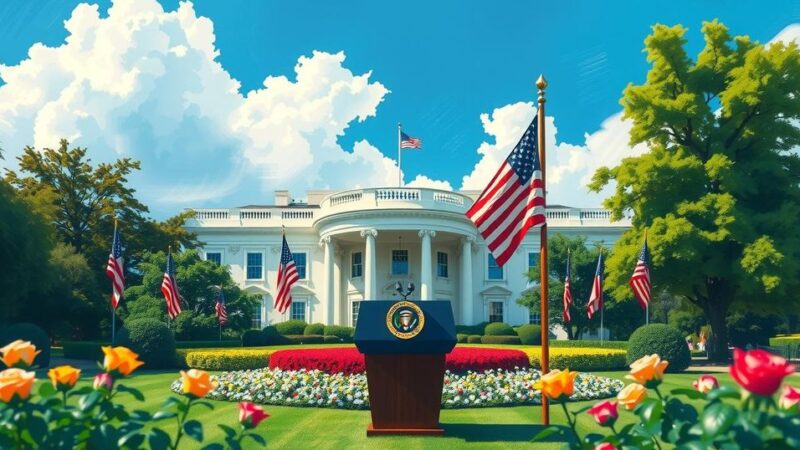Sam Nujoma, Namibia’s first president and liberation leader, passed away at 95. He was instrumental in leading Namibia to independence in 1990 after years of struggle against apartheid South Africa. Nujoma’s leadership is celebrated for promoting democracy and reconciliation, while his complex legacy includes both alliances and conflicts on the global stage. His death marks a significant loss for the nation he helped to found.
WINDHOEK, Namibia (AP) — The Republic of Namibia mourns the death of Sam Nujoma, its first president and esteemed freedom fighter, who passed away at the age of 95. Nujoma’s death was confirmed by the current Namibian President, Nangolo Mbumba, who noted that the founding father of Namibia succumbed to illness after a recent hospitalization. Mbumba expressed profound sorrow, stating, “The foundations of the Republic of Namibia have been shaken.”
Sam Nujoma led Namibia to independence from the apartheid regime in South Africa in 1990 and served as president for 15 years. He is revered as a father figure among Namibians for guiding the nation through the tumult of colonial rule and a protracted independence struggle. His leadership was pivotal in fostering national healing following the internal divisions exacerbated by the war and apartheid policies.
As a prominent African leader, Nujoma was among the last of his generation to transition his country from colonialism to independence, alongside figures such as Nelson Mandela. Though some critiques arose regarding his Marxist leanings and political suppression during his exile, many recognized his efforts to establish a democratic framework post-independence, integrating diverse political voices into governance.
Nujoma was also known for his controversial remarks, particularly his strong anti-Western rhetoric and theories about AIDS. He maintained alliances with countries like Cuba and North Korea while adeptly engaging with Western powers, symbolized by his reception by President Bill Clinton in 1993, who hailed him as a “genuine hero of the world’s movement toward democracy.”
Born into a modest family, Nujoma’s upbringing in rural Namibia shaped his commitment to his people. His political activism began in the late 1950s after his arrest during a protest, prompting him to lead the South West African People’s Organization (SWAPO). Under his leadership, SWAPO initiated armed resistance against South African rule, illustrating his determination for self-determination, stating, “We started the armed struggle with only two sub-machine guns and two pistols.”
Sam Nujoma stands as a seminal figure in Namibia’s history, instrumental in the nation gaining independence from South African rule in 1990. As the first president, he served for 15 years, significantly influencing Namibia’s political landscape and contributing to national reconciliation efforts after a history of deep-rooted ethnic divisions. His legacy is characterized by his dual role as an anti-colonial guerrilla leader and a pragmatic statesman who navigated the complexities of post-colonial governance.
The passing of Sam Nujoma marks the end of an era in Namibian history. As a prominent figure in the liberation struggle and the nation’s first president, his contributions to democracy and national unity remain foundational to Namibia’s identity. His life’s work serves as a testament to resilience and the enduring spirit of a nation once marked by struggle.
Original Source: www.newspressnow.com






